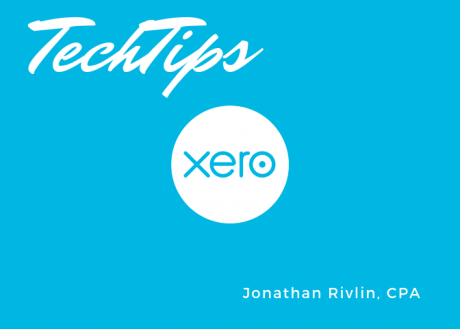By Jonathan Rivlin for MSATP
This post will focus on the exciting world of sales taxes — we’ll leave their oft-forgotten friend use tax for another post.
NOTE: This post was written before the US Supreme Court’s Wayfair decision; as of now, Quill is still the law of the land. And that land includes some 10,000 taxing jurisdictions!
It’s not that we don’t want to comply, it’s just that with the lack of uniformity in what is taxable, what the rate is, what the frequency of measurement is, whether it’s cash or accrual, what type of registration is required, and how payment is to be made (electronic or paper), AND whatever you think you know today will be obsolete tomorrow, compliance is, in a word, difficult.
When your humble Tech Tips was entering the profession in the 90’s, this was not an issue. Our retail clients didn’t have to worry about nexus with other states. Nexus back then was a hair product. (Yes, I know that product is spelled “Nexxus,” but you get the point.)
So, sales tax: don’t worry, there’s an app for that.
Both QBO and Xero (See prior post on Xero) have sales tax modules built into them, but that’s not enough. These ledger based modules will help you calculate which sales are sales taxable, what rates apply (provided you know what rates to use), and what jurisdictions to remit to, provided that you know this and manually update it yourself.
As limited as this is, it is a mandatory first step.
Now, having gotten that groundwork set out, we can look at some purpose built sales tax apps that can snap into your cloud based ledger.
We’ll look at two: Avalara and TaxJar.
Avalara and Intuit seem to be kindred spirits. Avalara does not publish rates on its website — instead, would-be clients are instructed to contact them for a quote. In this modern age, this is where the decision should stop. This tactic may have worked prior to the Cloud, but in today’s environment it has the veneer of something less than trustworthy.
TaxJar and Xero also seem to be kindred spirits. TaxJar and Xero are native to the Cloud — they were built for the modern way of transacting and computing. Both TaxJar and Xero publish their rates on their website: you know what you’re getting when you pay. You can sign up yourself, on your time, without hassle or the pleasant experience of being upsold.
Both TaxJar and Avalara will calculate your sales tax and assist with filings and registrations. Both sites offer state registration services for varying price levels. Both sites offer a resource library that appears to be available to the public without charge, which is very helpful! There’s a certain commoditization at work here.
Our decision was to use TaxJar, and here’s why:
1) Pricing was transparent (See above and also the previous article on Xero)
2) The “partner agreement” didn’t require us to violate the AICPA’s code of professional ethics. Let’s elaborate on this:
The new way of doing business involves the accounting firm establishing a relationship with a given app provider, be it Xero or Intuit, TaxJar or Avalara, or what have you. These companies offer (often require) some level of training to ensure that each accounting partner knows how to use their system. This is a little patronizing, but it is important.
These apps also have different partner levels (bronze, silver, gold, platinum, etc) based on the number of clients a given firm puts on a specific app. Discounts on per client monthly fees can be had once certain benchmarks are hit. These apps also have agreements that firms need to adhere to.
And then we come to Avalara’s partner agreement.
Avalara’s partner agreement required us to create and submit a marketing plan to Avalara for review, and they would punish us if we failed to meet the benchmarks set out in our plan. Avalara in a sense was inserting themselves into our business and making us responsible for growing their business. No other app does this! When I took issue with this to the sales rep that we contacted, I was told that it wasn’t really enforced and no other accounting firms had ever questioned it; they just sign up, and couldn’t I just sign up already? Why was I bothering her with my questions? (Us CPAs and our questions…)
I realize that not all readers of this column are CPAs, but for those readers that are CPAs, and for any other practitioner that is governed by some regulatory body (attorneys, EA’s, licensed tax preparers, etc), we are governed by a code of professional conduct that requires us to remain in compliance and good stead with any contracts we enter into.
In the 90’s and Aught’s, this meant that we had to be honest about how many user licenses we needed to disclose to Intuit; that we couldn’t use the same copy of Office for all of our work stations. Not that anyone has ever done that — by the way, doing something like this is a felony, and it’s also grounds for being thrown out of the profession.
So, back to Avalara and their partner agreement: If you want to keep your license to practice (and I know that’s a tough call after the new tax law), I would strongly suggest not obligating yourself to an overly invasive, difficult-to-comply-with software license agreement.
I can’t tell you what to do. What I can provide are some alternative perspectives for a given situation, or as Obi Wan Kenobi would say, “…a certain point of view.”
There are surprisingly few absolute right or wrong, yes or no decisions. For us, it comes down to who we want to spend our time with. What do we value as a firm? How would we want to be treated? How do our clients want to be treated? Our firm’s answers to these questions may differ from yours and that’s okay — just be clear about what your answers are and how you arrived at them.
For us, we value transparency, low-pressure sales, well-designed U/X (user interface), passion for their specialty bordering on geekiness, fantastic tech support, and an open attitude where we are treated like partners and not as marks to be milked for add on sales and hidden fees.
That’s why we chose TaxJar over Avalara, Xero over QBO, Gusto over ADP/Paychex, and more apps that we’ll detail in subsequent posts.
——
We’d like to hear from you! Please submit your own tech tips to us at techtips@msatp.org! We will award a free subscription to The Tax Book to the person who submits the best tip.
Thanks, and catch you next time!
TT



